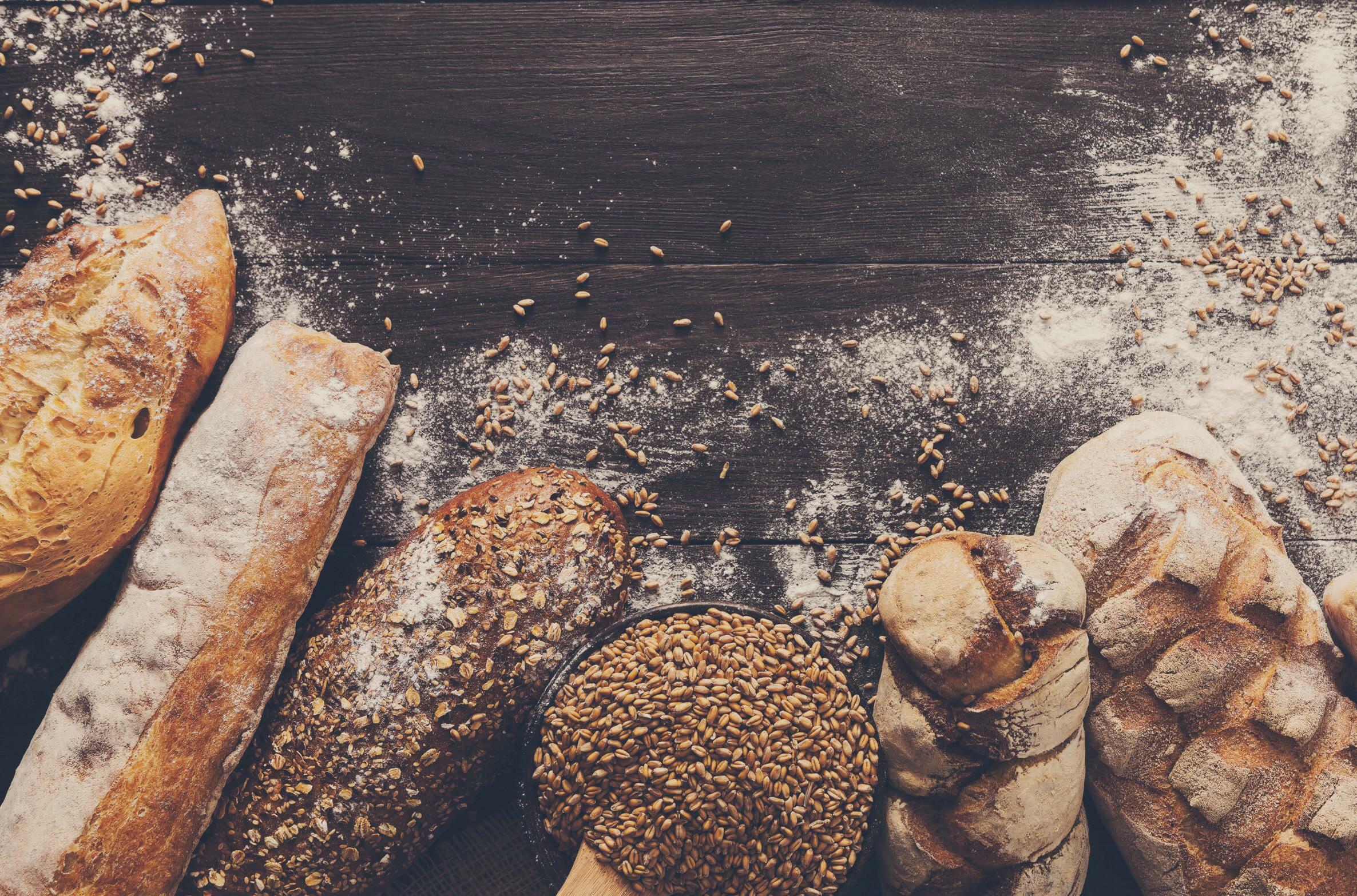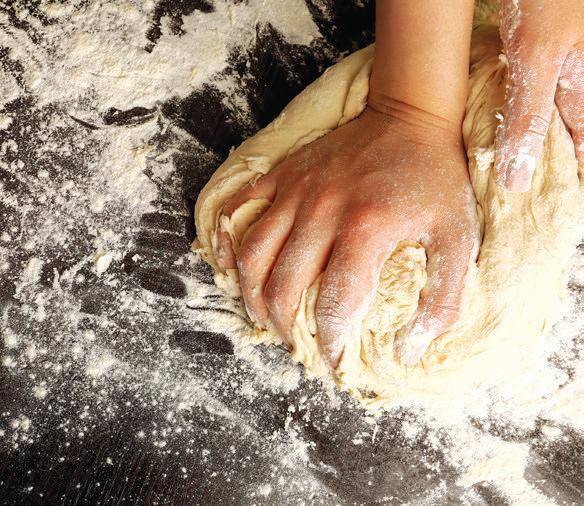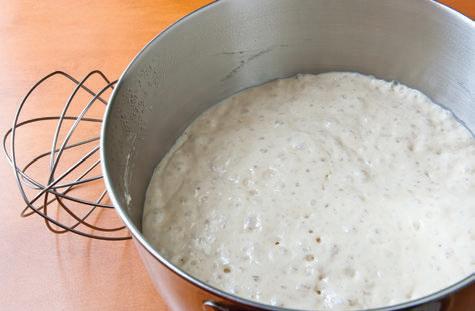Intentar ORO - Gratis
The magical Transformation of BREAD
Muse Science Magazine for Kids
|Muse March-April 2025: Everything Is Chemical
HOW BAKERS TURN FLOUR INTO FRESH LOAVES

You may eat your PB&J, or peanut butter and jelly, sandwich without even thinking about what's holding it together. But without bread, you won't have a sandwich. You'll just have a mess.
To people from all around the world, bread is an important, familiar food. But it's also an amazing transformer. To turn into those soft, chewy, and delicious slices of bread, your loaf had to go through an extraordinary series of changes.
Who Kneads Dough?
You only need four ingredients to make bread: water, flour, salt, and yeast. Yeast is a type of microbe, a living organism too small to see.
Flour is dry and powdery. It comes from ground-up grains of wheat. When you add water, the flour absorbs the liquid. The mixture forms clumps. If you continue mixing, you'll get a big lumpy blob. As you knead it-stretch it, roll it, and flatten it-the blob soon becomes smooth.
 When you knead a lumpy blob of flour and water, it becomes smooth and turns into dough.
When you knead a lumpy blob of flour and water, it becomes smooth and turns into dough.You can turn it to almost any shape. You have turned flour and water into dough.
This magical transformation requires proteins. Proteins are molecules found in all living things, from plants to people. There are two main types of proteins in flour: glutenins and gliadins. Together, gliadins and glutenins form a network of proteins called gluten, which gives bread its wonderful texture and shape.
Glutenins are why dough is stretchy. When flour absorbs water, the water allows the glutenins to move around. As you knead the dough, the glutenin and gliadin molecules start joining together. They form a stretchy network, like a net made out of rubber bands.

Esta historia es de la edición Muse March-April 2025: Everything Is Chemical de Muse Science Magazine for Kids.
Suscríbete a Magzter GOLD para acceder a miles de historias premium seleccionadas y a más de 9000 revistas y periódicos.
¿Ya eres suscriptor? Iniciar sesión
MÁS HISTORIAS DE Muse Science Magazine for Kids

Muse Science Magazine for Kids
ANIMAL FIREFIGHTER TO THE RESCUE
Can animals help manage the risks of deadly wildfires?
3 mins
Muse July 2025: The Story Behind Wildfires

Muse Science Magazine for Kids
FIRE DANGER
WHY THE RISK OF WILDFIRES KEEPS GROWING
4 mins
Muse July 2025: The Story Behind Wildfires

Muse Science Magazine for Kids
The Miller NEW Normal
WHAT TODAY’S WILDFIRES TELL US ABOUT OUR FUTURE
8 mins
Muse July 2025: The Story Behind Wildfires

Muse Science Magazine for Kids
WOMEN AND FIREFIGHTING: A GOOD FIT
Jessica Gardetto is a firefighter. Her father was, too. “I grew up with my dad coming home smelling like wildfire and covered in soot,” she says.
1 min
Muse July 2025: The Story Behind Wildfires

Muse Science Magazine for Kids
What is happening on your fingertips when they get all wrinkly in a hot tub?
—Felix G., age 10, Montana
1 mins
Muse July 2025: The Story Behind Wildfires

Muse Science Magazine for Kids
WHEN the SMOKE CLEARS
THE LINGERING EFFECTS OF THE RECENT PACIFIC PALISADES AND ALTADENA EATON FIRES
6 mins
Muse July 2025: The Story Behind Wildfires

Muse Science Magazine for Kids
PICKING TEAMS
Keep it fair with a strategy that relies on geometry.
2 mins
Muse July 2025: The Story Behind Wildfires

Muse Science Magazine for Kids
SHAN CAMMACK
WILDLIFE BIOLOGIST AND FIRE SAFETY OFFICER
3 mins
Muse July 2025: The Story Behind Wildfires

Muse Science Magazine for Kids
Scientists Create Mice With Woolly Mammoth-Like Fur
RESEARCHERS AT A COMPANY IN TEXAS ARE WORKING TO CREATE A LIVING ANIMAL THAT RESEMBLES THE EXTINCT WOOLLY MAMMOTH. Recently, they produced mice with traits of the large mammal. The mice all have coats with mammoth-like fur, and some of the small mammals also have genes that help them store fat. Both features would help the animals survive in the cold Arctic, where the woolly mammoth once lived.
1 min
Muse July 2025: The Story Behind Wildfires

Muse Science Magazine for Kids
Cool Sunshade Added to the Nancy Roman Space Telescope
THE NANCY ROMAN SPACE TELESCOPE IS A NEW TELESCOPE THAT NASA IS BUILDING AND WILL LAUNCH INTO SPACE, LIKELY IN EARLY 2027.
1 min
Muse July 2025: The Story Behind Wildfires
Listen
Translate
Change font size

